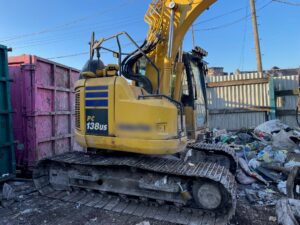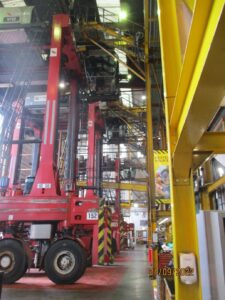- Building control professionals who carry out any building control work in England or Wales must be registered with the Building Safety Regulator (BSR).
- Registration data indicates a growing number of inspectors are joining the registered profession, reflecting industry’s commitment to upholding high standards.
- A temporary 13-week extension period for experienced building inspectors in England to complete their competency assessment came to an end on 6 July 2024.[1]
Building Control registration data indicates a growing number of professionals joining the registered ranks, reflecting the industry’s commitment to upholding high standards.
The transition extension period ensured sector professionals had sufficient opportunity to align with the new requirements at a realistic pace without disrupting or compromising their ability to provide essential services.
As of 30 July 2024, there were 4,049 building professionals registered as building inspectors in England and Wales. All Registered Building Inspectors have signed up to and are accountable under the Code of Conduct.
Registration by classes:
- At Class 1 (Trainee) – 1,971
- At Class 2 (Registered Building Inspector) – 1,614
- At Class 3 (Specialist Building Inspector) – 464
- At Class 4 (Building Inspector – Technical Manager) – 516
Commenting on the latest figures, Ged Cooper, BSR Head of Building Control Professional Standards, says: “We are encouraged by this steady increase in numbers and are pleased to see a consistent level of success in Class 2 and Class 3 and it’s heartening that a high proportion are also Class 4 technical managers. We expect to see this positive progress continue.
“BSR is focused on being a fair and pragmatic regulator. Granting an extension for building inspectors to complete their competency assessments shows our commitment to a supportive regulatory environment and a level playing field in building control.
“Building Control Bodies must take regulatory advice from RBIs of Class 2 or Class 3 RBIs to perform their functions effectively. We’ve started investigations and inspections of these bodies and will require assurance with evidence to demonstrate that they have sufficient resources to deliver their regulatory duties and responsibility.”
Throughout the transition period, BSR listened to and acknowledged the sector’s challenges. This included enabling a limited number of professionals who had completed the competency assessment process by the 6 July deadline, but were awaiting their results, to continue to undertake the restricted activities for which they had completed the assessment process.
On the immediate future for the profession, Ged Cooper says: “As an enabling regulator, BSR focus on facilitating compliance and supporting building control professionals through clear regulatory pathways and frameworks. Building control is crucial in the construction process, and we value the role of building inspectors in supporting Building Control Bodies.
“The profession is entering a new transformative era, with unified, consistent standards making it a positive career choice. Enhanced professional standards will lead to stronger compliance with building regulations. Improved practices will set high standards as the norm, not the exception.
“Looking at the landscape ahead, the quality, effectiveness, and efficiency of building control activities are set to significantly improve”.
BSR believes that increased transparency and accountability within the building control sector will increase confidence and trust, reassuring the public that building work is being strongly and consistently regulated. This improved status will not only help attract new professionals into the sector but also retain existing talent, contributing to a more robust and effective building control landscape.
Find a registered building inspector in England – GOV.UK (www.gov.uk)
Find a registered building inspector in Wales – GOV.UK (www.gov.uk)
[1] Transitional arrangements in Wales can be found here
Notes to Editors
- Plans for regulation of the Building Control profession were introduced in the Building Safety Act 2022. BSR has worked closely with representative bodies from the profession over a considerable period of time to prepare for implementation of the new requirements.
- The standards required to demonstrate competence have been regularly communicated to the profession. The Building Inspector Competence Framework (BICoF) went through a full public consultation between October and December 2022 and was published in April 2023.
- Registered Building Inspector’s competence requirements are set out in the BICoF. The class of registration required to be achieved will depend on the complexity and risk of the building work being controlled. Inspectors must select a class of registration appropriate to their work and demonstrate their competence through an independent competence assessment scheme. There are 4 Classes of building inspector registration. Class 1, 2, 3 & 4.
- All Registered Building Inspectors sign up to the Code of Conduct and are accountable to the Regulator. The Code of Conduct also places a responsibility on registered building inspectors not to act beyond their individual competence.
- BSR will focus regulatory activity on building control bodies and inspectors




